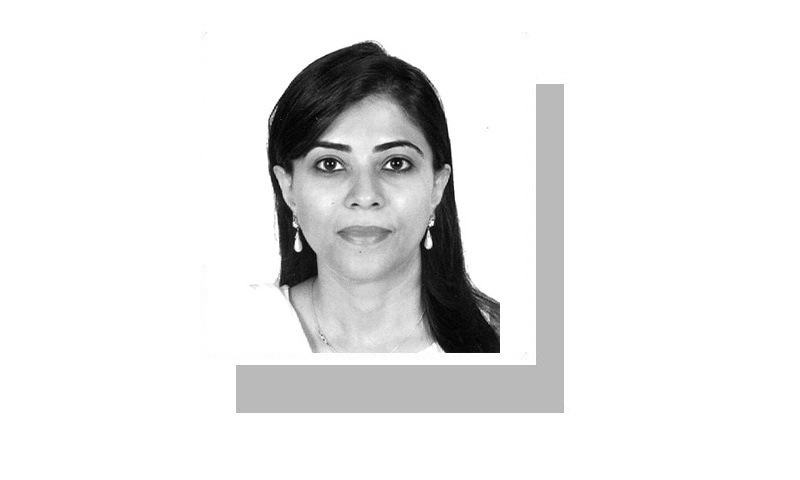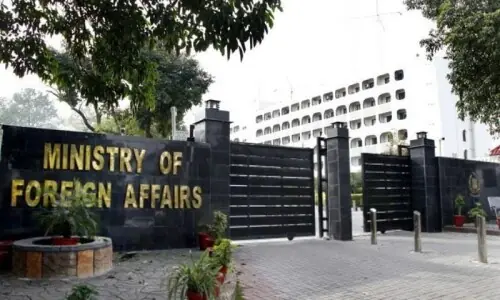BUDGET week is here and we are already drowning in figures and terms such as ‘outlays’, ‘slippages’, ‘subsidies’ and ‘surcharges’. It is always hard to understand the technical phrases thrown our way, especially since newspapers and channels are aimed at the non-specialist.
And while the newspapers will be full of reports and analyses on the budget and the state of the economy in the days to come, this article is not going to be one of them. This is really not a piece on the economy.
It is just a recollection of memories of a subeditor who has never (ever) understood figures and budgets, along with ‘outlays’, ‘slippages’, ‘receivables’ and ‘zero ratings’, despite having spent two decades editing stories with all these fancy words. But what I do remember is that our (public) concern with and interest in the economy lasts only as long as the crises — and justifiably so.
It began with Nawaz Sharif’s second term. It seems as if the issues back then were no different from today; the economy was a big deal back then too. The contracts signed with the IPPs by the previous government of Benazir Bhutto were under fire for being unfair and extractive, while others kicked up a fuss about why longer-term and cheaper projects such as dams had been ignored.
It is just a recollection of memories of a subeditor who has never understood figures and budgets.
The electricity bills had become such a headache that military troops were called in to collect payments and many an article was written to warn of a creeping coup citing how the military was being used for responsibilities ideally in the domain of the executive.
And while shortly afterwards, Pervez Musharraf replaced Nawaz Sharif, the focus continued to be the economy as stories were written (and edited) on the low number of income tax payers (they were fewer than two million back then too) and what had to be done to fix this. But then 9/11 happened, and the electricity bills, the income tax base and the burden of excessive employees on state-owned organisations slowly became less urgent.
As this is not a piece on the state of the economy, it is hard to say what happened back then. And whether or not it was linked to our renewed importance to the West and the money flowing our way in the shape of Coalition Support Funds (which we learnt much later were used for budgetary support) and more. For non-specialists such as myself, our problems were behind us and we were now to live happily ever after.
But then politics (and journalism) in Pakistan is like a soap opera. Every so often, the storylines are repeated with a different cast of characters. Enter 2008 and the PPP. It was déjà-vu, with the talk once again of a narrow tax base, circular debt and how electricity bills were not being paid.
However, there was a twist in the old plot. The outsiders were lecturing us on this — publicly. Every American official passing through Pakistan in those days (and there were quite a few as Barack Obama’s White House shaped its Afghanistan policy) would chide the nation for not paying enough taxes. From Hillary Clinton to Richard Holbrooke and even the US ambassador in Islamabad, they could all be heard talking about the need to broaden the tax net and how Pakistan needed to use its water more effectively before it complained about India’s misuse of the water treaty.
If this was a piece on the economy, it would explain why the Americans were poking their nose in so much more than security issues and whether this had something to do with the continuing Coalition Support Funds and the Kerry Lugar Bill — but this is not a piece on the economy.
It is hard to remember clearly how much heed the government paid to the lectures. There is, though, a memory of an interaction with a diplomat in an undiplomatic mood. It was the summer of 2010 and he was running late because the Foreign Office had called a meeting unexpectedly, throwing his schedule off kilter. The meeting (called within hours) was to ask the international community to help in the aftermath of the floods that had hit Pakistan. He asked why a country needed to ask for help; surely the international community helped as much as it could during any natural disaster, but who calls a last-minute meeting just to beg for help? All I can remember is that I had no answers.
Had Pakistan become used to bailouts and ‘help’ so much so that it felt no qualms in directly asking for them? And was this in any way linked to the ‘difficult’ decisions we are now being told we have to take?
If this was an article on the economy, it would explain why these ‘difficult’ decisions have been pending for so long. And why the IMF continued to give 12 waivers to the country in the last programme when it seemed to have known that Pakistan had boosted growth “at the expense of rising vulnerabilities and lingering structural and institutional weaknesses”.
All I can say is that we seem to have come full circle to when I first dipped my toe in journalism — the same issues and the same sense of urgency as were there in the late 1990s. The tax net has to be broadened; electricity bills have to be paid; the burden of the loss-making state-owned enterprises is untenable; and some are even discussing the capacity charges of the power plants. It all sounds rather familiar — at least to those of us not familiar with the nitty-gritty of the economy.
If this was an article on the economy, it could have explained how we managed to not address the problems for so long. And the fear that this IMF programme will be the harshest yet. Why the earlier ones were less harsh, and whether the crises were less severe. Were the then governments more competent, or were those looking to help us more ‘charitable’? If this was an article on the economy, it might have explained all this.
The writer is a journalist.
Published in Dawn, June 11th, 2019

































